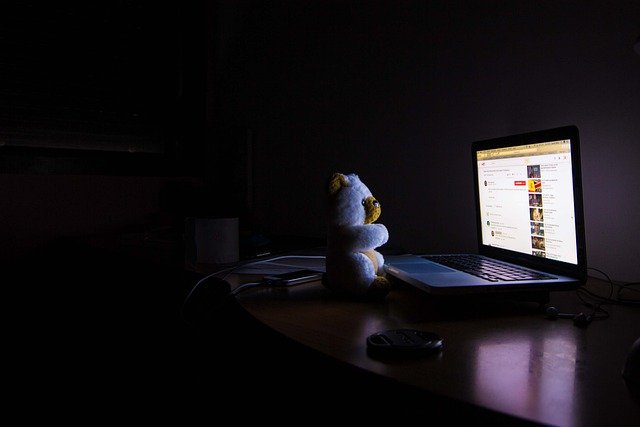

Mary Wollstonecraft

Estimado lector, como recordarás en:
Hablamos sobre el lóbulo pre-frontal, para qué sirve y brevemente sobre como fortalecerlo. Hoy me gustaría, sin embargo, hablarte un poco más sobre las posibles consecuencias de descuidarlo. ¿Por qué digo posibles si en el post anterior coloqué estudios cientificos que avalan su deterioro? Porque aunque la mayoría somos parecidos, de todas formas no somos iguales.
Todos sabemos de esos casos. Una familia donde siempre hay una persona menos exitosa pero siempre hay uno que a pesar de tener los mismos padres excede en casi todo. Desde luego, como ya te habrás imaginado hay un factor genético muy importante que influye en cada aspecto de nuestras vidas y que incluso previene los efectos nocivos de muchas cosas.
Por ejemplo, y muy relevante a este tema, las adicciones. Podría resumirse de manera escueta a que algo te gusta tanto que no puedes parar comerlo, tomarlo o inyectartelo. Pero... ¿Qué es lo que define aquello que nos gusta? De nuevo, no es otra cosa que nuestro cerebro diseñado a su vez por nuestros genes. Lo investigué al conocer a una persona a quien no le gustaba el chocolate. Por loco que parezca, hay personas a las que nisiquiera les gusta el dulce, pero parecen ser la excepción de la regla, del mismo modo que hay quienes son inmunes a los efectos de las pantallas en su cerebro. Simplemente, si algo no te gusta tanto, tampoco lo haces tanto. Mantienes tu cerebro saludable y eso te permite hacer cosas que parecen sobrehumanas... Pero no lo son. Solo que el resto hemos empeorado.


Somos un producto
La dopamina, la sustancia de la que se apoyan las redes sociales y los medios audiovisuales para mantenernos pegados es en su mayoría adictiva, porque suele estar ligada a procesos que tienen que ver con la supervivencia, como comer, dormir o reproducirse. Es la principal arma de nuestro cerebro a obligarnos a vivir junto con las emociones como el miedo, que también es muy imperativo para evitar que nos metamos en problemas.
En algún punto, las noticias y los medios audiovisuales descubrieron, junto con las redes sociales que provocarnos estas sustancias o combinarlas, nos mantendrían pegados a sus aplicaciones, lo que significa un montón de dinero. Si encimas das la impresión de vivir en un mundo oscuro, entonces creas el círculo vicioso perfecto.
Me ha ocurrido a mí. Si estoy frustrado, mi primer impulso es comer algo dulce. ¿Por qué? Porque es placer y el cerebro sabe que ayudará a calmarme. Estar en un estado emocional perturbado o negativo nos hace vulnerables al dolor, a nuestras emociones y a nuestros impulsos. Nos volvemos más ansiosos e impacientes. Pues bien, accedo a comer algo dulce más bien contra mi voluntad y el subidón de azucar (procesada encima) me altera aún más a pesar de estar suspirando de alivio. A lo mejor comer algo salado ayuda. Pues el momentum de la dopamina vuelve a obligarme a hacerlo y yo me convenzo que "me lo merezco" (una de las frases más épicas antes de arruinarnos la vida) y me como unas papitas.
Estoy lleno de carbohidratos procesados que se vuelven azucares en mi sangre y puedo sentir mi corazón bombear a fuego.
¿Me siento mejor?
Mmm la verdad es que no. Pero todavía tengo algo de dopamina disponible, así que mi cerebro me dice que me ponga a revisar el facebook donde ruedo y ruedo por el feed, hasta que empiezo a sentir vacío, desmotivado, triste... deprimido. Mis reservas de dopamina están por el suelo y ya no quiero hacer nada, menos lo que debería hacer por mi bien. Sigo sintiéndome mal. El algoritmo de facebook puso en mi feed un tema controversial que me hizo enojar mucho o me hizo revolcarme de impotencia ante las crueldades del ser humano. Dejo mi teléfono a un lado y como sigo sintiéndome mal, vienen los pensamientos negativos después de soltar el móvil que, suprimía todas esas emociones pero no las procesaba, así que reaparecen de golpe.


Consecuencias
Y así es la vida de una persona con depresión y ansiedad. ¿Conoces a alguien que nunca sale de su cuarto, está constantemente irascible, sensible y que no parece disfrutar nada en su vida? Pues es una persona que gracias a este proceso, que casi siempre comienza desde pequeño, tiene un Nucleus Accubens (Dopamina) y una Amigdala (ansiedad) muy desarrolladas. Como resultado, controlan cada aspecto de su vida.
Siempre que hacen algo, es para evitar que algo malo ocurra o para obtener impacientemente una dosis de dopamina. Esto puede ocurrir en mucha o menor medida, se hacen hábitos y finalmente, de la nada, ya caimos en una vida disfuncional. Desgraciadamente, ni el miedo ni el placer nos llevarán jamás hasta el final.

El exceso de placer desanima, vuelve el aburrimiento insoportable y, en cuanto al miedo, con solo sentirnos seguros un momento ya no necesitamos hacer más. En estas condiciones, es muy dificil realmente acometer un propósito importante, porque la diferencia radica en que seguimos en ellos aún si son dificiles o aburridos e ignorando inteligentemente, el miedo al fracaso en pos de un objetivo.
Espero que esta reflexión sea esclarecedora y que anime al amable lector a verse a sí mismo. ¿Es el placer y el miedo al dolor lo único que mueve tu vida? Si es así y ya te has dado cuenta, entonces hay esperanza, porque puede revertirse con paciencia y constancia. La próxima vez dilucidaremos como.
¡Gracias por leer y hasta pronto!





Mary Wollstonecraft

Dear reader, as you may remember in the previous post we talked about the prefrontal lobe, what it is for and briefly about how to strengthen it. Today I would like, however, to talk to you a little more about the possible consequences of neglecting it. Why do I say possible if in the previous post I placed scientific studies that support its deterioration? Because although most of us are similar, we are still not the same.
We all know of such cases. A family where there is always a less successful person but there is always one who, despite having the same parents, excels in almost everything. Of course, as you may have already imagined, there is a very important genetic factor that influences every aspect of our lives and even prevents the harmful effects of many things.
For example, and very relevant to this topic, addictions. It could be summed up briefly as that you like something so much that you can't stop eating it, drinking it or injecting it. But... What defines what we like? Again, it is nothing other than our brain designed by our genes. I investigated this when I met a person who did not like chocolate. As crazy as it may seem, there are people who don't even like sweets, but they seem to be the exception to the rule, just as there are those who are immune to the effects of screens on their brain. Simply, if you don't like something that much, you don't do it that much either. You keep your brain healthy and that allows you to do things that seem superhuman... But they are not. It's just that the rest of us have gotten worse.


We are a product
Dopamine, the substance that social media and audiovisual media rely on to keep us glued, is mostly addictive, because it is usually linked to processes that have to do with survival, such as eating, sleeping or reproducing. It is our brain's main weapon to force us to live with emotions like fear, which is also very imperative to keep us from getting into trouble.
At some point, the news and media discovered, along with social media, that inducing these substances or combining them would keep us glued to their apps, which means a lot of money. If you constantly create the impression of living in a dark world, then you create the perfect vicious cycle.
It has happened to me. If I am frustrated, my first impulse is to eat something sweet. Why? Because it is pleasure and the brain knows that it will help calm me down. Being in a disturbed or negative emotional state makes us vulnerable to pain, to our emotions and to our impulses. We become more anxious and impatient. Well, I agree to eat something sweet rather against my will and the sugar rush (processed sugar on top of that) upsets me even more despite me sighing with relief. Maybe eating something salty helps. So the dopamine rush forces me to do it again and I convince myself that "I deserve it" (one of the most epic phrases before ruining our lives) and I eat some chips.
I'm full of processed carbohydrates that turn into sugars in my blood and I can feel my heart pumping like fire.
Do I feel better?
Mmm, not really. But I still have some dopamine available, so my brain tells me to check Facebook, where I scroll and scroll through the feed, until I start to feel empty, unmotivated, sad... depressed. My dopamine reserves are at rock bottom and I don't want to do anything anymore, much less what I should do for my own good. I still feel bad. Facebook's algorithm put a controversial topic on my feed that made me very angry or made me wallow in helplessness at the cruelties of human beings. I put my phone aside and as I still feel bad, the negative thoughts come after I put down the phone, which suppressed all those emotions but didn't process them, so they reappear suddenly.


Consequences
And that's what life is like for a person with depression and anxiety. Do you know someone who never leaves their room, is constantly irritable, sensitive, and doesn't seem to enjoy anything in their life? Well, it is a person who, thanks to this process, which almost always begins at a young age, has a highly developed Nucleus Accubens (Dopamine) and Amygdala (anxiety). As a result, they control every aspect of their life.
Whenever they do something, it is to prevent something bad from happening or to impatiently obtain a dose of dopamine. This can happen to a greater or lesser extent, habits are formed and finally, out of nowhere, we fall into a dysfunctional life. Unfortunately, neither fear nor pleasure will ever take us to the end.

Excessive pleasure discourages, makes boredom unbearable, and as for fear, just by feeling safe for a moment we no longer need to do anything else. Under these conditions, it is very difficult to really undertake an important purpose, because the difference lies in the fact that we continue with them even if they are sometimes difficult or boring and intelligently ignoring the fear of failure in pursuit of an objective.
I hope that this reflection is enlightening and that it encourages the kind reader to see himself. Is pleasure and fear of pain the only thing that moves your life? If so and you have already realized, then there is hope, because it can be reversed with patience and perseverance. Next time we will elucidate how.
Thanks for reading and see you soon!



Mira que excelente tus observaciones. Quizás algunos de mis hábitos tengan su raíz ahí. Muchas gracias por compartir tu post
The truth is that what so ever that is excessive is no longer desirable, that to say with what you said on pleasure is alright friend.